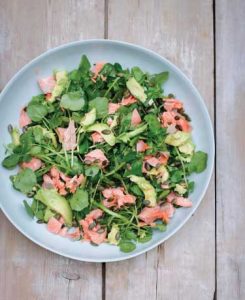Folic Acid, also known as folate, is a B vitamin. It is essential to the body especially in the role of cell production and division. This includes the production of red blood cells. It’s found in foods, fortified cereals, and other grain products and of course, vitamin supplements.
The Role of Folic Acid in Pregnancy
Folic acid helps the growth of the neural tube in a fetus, which develops into the brain and spinal cord. A deficiency in folic acid may result in the neural tube not being able to close correctly. The baby can then develop a condition called spina bifida, where the spinal cord and/or a sac filled with fluid protrude through an opening in the back. This defect is also known as anencephaly. Babies with anencephaly usually do not live long or may be permanently disabled.

Folic acid can reduce the incidence of these Neural Tube Defects (NTDs) by as much as 70%. Studies and research have long determined that when taken before and during pregnancy, folic acid may also protect against other birth defects, including:
Cleft lip and palate. Studies have shown that women who took multivitamins, who got at least 400 mcg of folic acid daily and ate a healthy diet, had the lowest risk of delivering a child with an opening in the lip (cleft lip).
Pre-eclampsia. One report found that women who took folic acid supplements during the second trimester had a reduced risk of pre-eclampsia, a pregnancy-induced high blood pressure.
Premature birth. Studies have indicated that women who took folic acid for at least a year before getting pregnant cut their chances of delivering early by 50 percent or more.
Folic Acid may also protect against, low birth weight, miscarriages, and poor growth in the womb.
Folic acid & your own health
In addition to protecting your baby from birth defects, folic acid could also protect your health. Studies show it might lower the risks of heart disease, stroke, and some types of cancers. Folic acid might even help ward off Alzheimer’s disease.
When should you take Folic Acid?
Birth defects occur within the first three to four weeks of pregnancy, so it’s important to have folic acid in your system during those early stages when your baby’s brain and spinal cord are developing. Taking into consideration that many pregnancies aren’t planned, every woman of childbearing age needs to take foods rich in folic acid or supplements with folic acid, regardless if they’re trying to conceive or not.
How Much Folic Acid Should I Take?
The recommended daily amount of folic acid for women of childbearing age is 400 micrograms (mcg). The same amount is recommended every day when you are trying to get pregnant.
If you are already pregnant, it is recommended to increase the amount of folic acid to 600 mcg. And while you are breastfeeding, you should get at least 500 mcg of folic acid daily.
If you have already had a child with spina bifida or anencephaly and are trying to get pregnant again, you will need more folic acid — beginning at least one to three months before conceiving and during the first three months of pregnancy. Talk to your doctor about the recommended dosage.
Since 1998, the FDA has required food manufacturers to fortify all enriched cereals, bread, pasta, rice, and other grain products with folic acid. Some cereals contain the full 100% of folic acid you need each day.
Foods High in Folate
Foods that known to be rich in folate, the natural form of folic acid include:
- Asparagus
- Bananas
- Broccoli, spinach, and other green leafy vegetables
- Dried beans
- Oranges and orange juice
- Peanuts and other nuts
- Peas
Make your meals folate-rich!
Folic acid supplements are not the only way to keep deficiencies at bay. You can also increase your folate intake through your meals! Here are some floated-rich recipes to try.

Salmon & Spinach Salad with Avocado & Asparagus
Ingredients:
- 200g roasted salmon fillet, flaked
- 150g baby spinach leaves
- 1 avocado, flesh sliced
- 1 tbsp olive oil
- 2 tbsp lime juice
- 2 tsp brown sugar
- Sesame seeds, to garnish
Method:
- To make the dressing, whisk together the olive oil, lime juice, and sugar in a bowl and season with salt and pepper.
- Place salmon, spinach, and avocado in a large bowl.
- Toss the dressing through the salad and sprinkle with sesame seeds.

Roasted Brussel Sprouts with Buttermilk
Ingredients:
- 300g/3 cups Brussel sprouts
- 2 tbsp homemade buttermilk ranch dressing (or just buttermilk, 1 clove garlic, and lemon)
- Salt and pepper
Method:
- Heat the oven to 180°C/350°F.
- Cut the base off the sprouts and halve them. Place in a casserole dish.
- Pour over the buttermilk dressing, salt, and pepper generously and stir to coat.
- Roast in the oven for 20–25 minutes or until the sprouts are quite brown around the edges.

Fried Lady’s Fingers (Okra) with Green Chillies
Ingredients:
- 1 tbsp sunflower oil
- 1/2 tsp cumin seeds
- 1 small green chilli, very finely chopped
- 400g small okra ends trimmed, sliced into small rounds
- 2 tsp sesame seeds
Method:
- Heat oil in a pan over medium-high heat.
- Add cumin seeds and stir for 30 seconds or until fragrant.
- Add chilli and okra and toss for 1–2 minutes until tender, then add the sesame seeds and cook for a further 20 seconds only.
- Remove from the heat, season with salt, then serve immediately.
Folic Acid Supplements
Folate is not a nutrient that is easy to obtain from food alone — Which is why taking a daily vitamin supplement containing folic acid can help. Most multivitamins contain the recommended amount of folic acid. If you’re not sure which vitamin to take, read the label to ensure that the supplement contains 400 mcg or 100% of the daily recommended value of folic acid.
If you’re trying to get pregnant or are already pregnant, your doctor may prescribe a prenatal vitamin, which will contain all the folic acid you’ll need. Again, if you’ve already had a baby with an NTD, your doctor will prescribe a much higher dose of folic acid.
Side-effects of overdose
Even when taken in doses exceeding what is recommended, folic acid is not likely to be toxic. However, it is still highly advisable to consume no more than 1,000 mcg in supplement form each day.


